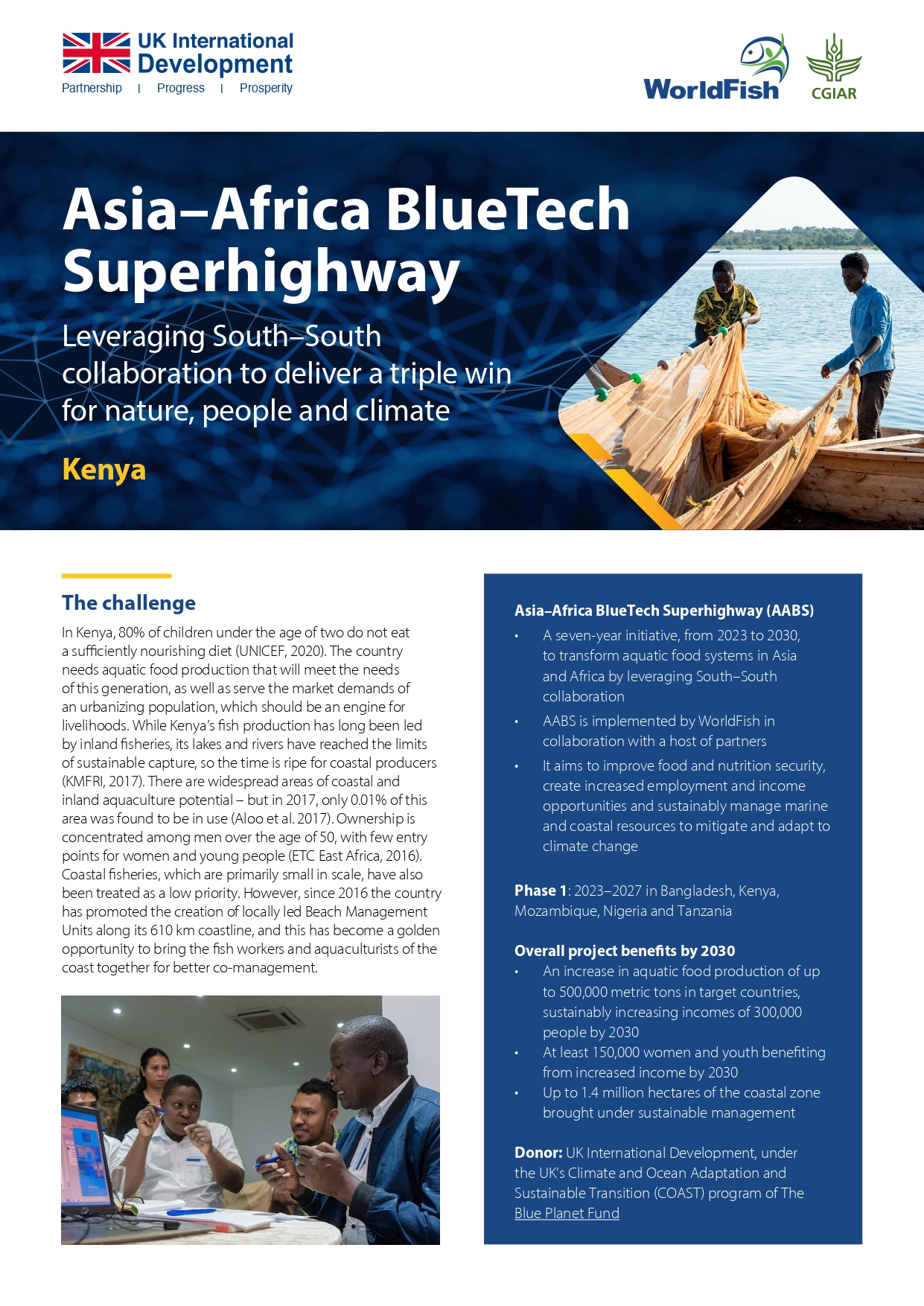The challenge for aquatic food production and livelihoods in Kenya
In Kenya, 80% of children under the age of two do not eat a sufficiently nourishing diet. The country needs aquatic food production that will meet the needs of this generation, as well as serve the market demands of an urbanizing population, which should be an engine for livelihoods. While Kenya’s fish production has long been led by inland fisheries, its lakes and rivers have reached their limits of sustainable capture, so the time is ripe for coastal producers. There are widespread areas of coastal and inland aquaculture potential – but in 2017, only 0.01% of this area was found to be in use. Ownership is concentrated among men over the age of 50, with few entry points for women and young people. Coastal fisheries, which are primarily small in scale, have also been treated as a low priority. However, since 2016 the country has promoted the creation of locally led Beach Management Units along its 610 km coastline, and this has become a golden opportunity to bring the fish workers and aquaculturists of the coast together for better co-management.
The solution: Asia–Africa BlueTech Superhighway in Kenya
Asia–Africa BlueTech Superhighway (AABS) will help Kenya address its fisheries and aquaculture challenges by leveraging South–South collaboration to improve sustainability, resilience and prosperity in coastal communities. Through evidence-based models and partnerships, AABS will enhance the adaptive capacities of small-scale fish workers and farmers, mitigating the effects of climate change and increasing the sustainability of fish production. By focusing on Kenya’s vulnerable coastal regions, the initiative will not only support the government’s goals but also ensure that the livelihoods of these communities are more secure and equitable.
AABS is implementing three key areas of work in Kenya:
- Digital Coasts—co-creating and scaling out contextualized digital information systems for small-scale fisheries.
- Integrated Multi-Trophic Aquaculture (IMTA)—adapting and implementing IMTA tailored to local context in Asia and Africa.
- Climate-Smart Technologies for Reducing Aquatic Food Loss and Waste—scaling affordable, accessible climate-smart food preservation, processing and storage technologies to reduce aquatic food loss and waste.
